|
What if you were guaranteed immense clarity and direction just from taking a simple year off of school to travel abroad? What if it could propel you way farther than jumping straight into college? Would you do it without hesitation?
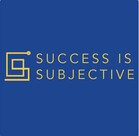 In this episode of Success is Subjective, Danny joins Joanna to share his journey as he traveled as a young adult, exploring different cultures and how his gap year experience has stuck with him, even a decade later. Listen in for Danny’s insight on the impact the right gap year program can have on a young adult, possibly changing the entire trajectory of their life. https://podcasts.apple.com/us/podcast/episode-118-making-the-most-of-your-young-adulthood/id1499891712?i=1000550592741 What You Will Learn
0 Comments
by Dr. Heather Tracy, Ed.D. Posted on Medium at: https://medium.com/@drheathertracy/the-best-way-to-learn-about-america-and-yourself-is-to-leave-it-1cef548fb43f Find an opportunity to leave. I’m not talking about a 2 week trip to a Mediterranean island, which although lovely, basically leaves you with a very nice tan and a smaller bank account. I’m talking about real cultural immersion and all of the messiness that comes with it — the language, the food, the driving, the music, the politics, the weather, and the people.
Why bother? The challenges life hands you abroad may be much more difficult outside of your comfort zone, but the benefits — if you are open to them — will change you, your perspective, and your life for the better. Yes, you will (hopefully) learn a marketable skill by mastering another language. But perhaps more importantly, you will learn problem-solving, empathy, humility, patience, perspective, openness, and completely new ways of communicating — not to mention the grit and confidence that you can indeed get through pretty much anything. Click here to read more -----------------------> Subtitles are out! Enjoy Dr. Recio's TedxPuraVida talk about Ecosystems of Learning! by Dr. Heather Tracy, Ed.D. In other words, the Process-Based part of PBS connects with our students and figures out where they are in the learning process, which mental models they have created, and the Scaffolding part of PBS determines what kind of structure and support students need in order to collaboratively engage in a novel learning experience that challenges and expands previous mental models. This is empowered learning. Once we know where our students are (empathic connection), facilitators can design the experiences that structure and support a student to engage in more complex ways of interacting with a problem or issue at hand. This is collaborative empowerment. We provide the learning experience that can empower a student to take on the complex perspectives to solve real-world and relevant problems. So why is this helpful? Oftentimes, facilitators who are overly focused on structure can be rigid and miss opportunities to empathically connect to meet a student where they are to facilitate engagement in learning. On the flip side, facilitators who are overly empathic can over-accommodate and therefore miss opportunities to structure learning experiences that push learners outside of their comfort zones enough to actually grow into more complex learners and problem-solvers. Finding a balance between empathy and scaffolding can create the most rewarding growth and learning experiences. This not only helps our students grow, but we too (as facilitators) grow.
Subtitles coming soon but if your Spanish is good enough, check out Dr. Danny Recio's TedTalk in Costa Rica about Ecosystems of Learning: by Dr. Heather Tracy, Ed.D. We hear it every day: School just didn't work for ___. Our child is bright, curious, and wants to understand his/her self better. There just isn't room for that in today's schools. Why has our educational system evolved so much more slowly than every other field in the Information Age?
And yet... they struggle. Resilience is a key word today because depsite a plethora of opportunities, our kids are struggling to see how they can make it in this world. They need hope. They need 21st Century skills - the skills that many schools are not facilitating. Based on research incorporating 21st Century Skills, systems thinking, and an analysis of cultural trends affecting the Information Age, PROPS is Supportive Immersion's answer to the skill set that today's youth need.
Contact us today if you want to learn more about how PROPS can be incorporated into the development of your parenting, educational, or therapeutic processes.
by Dr. Danny Recio, PhD Some studies say that youth from 30 or 50 years ago are no different than youth today, in terms of their preferences and struggles. Others speak of drastic increases in mental health issues in this age group and severe difficulties transitioning to adult life. From talking to people in different corners of the world about youth growing up nowadays, there seems to be a generalized concern about the effects of the virtual world (i.e. screens connected to the internet) in young people’s psyche. Overall, most of these people seem to believe that the virtual world functions like kryptonite in youth when it comes to having the fortitude to deal with the non-virtual world (or real world). I recently heard a similar argument in the show “Hidden Brain” from NPR. I strongly recommend you give the episode I’m linking a listen, but if you don’t have the time, just listen to the first 3 minutes. Here’s the link: https://www.npr.org/2019/02/05/691697963/close-enough-the-lure-of-living-through-others  If you just don’t have the time to listen to the first 3 minutes, let me give you the one sentence summary: the virtual world provides very close simulations of what one gets in the real world but cuts out the undesirable parts: the potential rejection, the risk, the boring, sad, anxiety producing, and imperfect parts. What do you think? How much do you think the virtual world is a place to hide for those who do not want to deal with the real world? We had our brilliant Bridge students listen to the first three minutes of this Hidden Brain episode called: “Close Enough: The Lure of Living through Others”, and then, they recorded their own episode of their podcast: The Seedpod. Here are their wonderful thoughts on this issue: https://www.bridgeyoungadults.com/bridge-blog Heather Tracy, our executive director, and I had presented at a conference on this issue. We had proposed that when it comes to the virtual world, there’s a “rich get richer, and poor get poorer” dynamic. This means that those with the built-in skills to learn independently, socialize effectively and manage time efficiently, tend to use the virtual world to enhance their ability to accomplish their goals. Conversely, those who lack the above-mentioned skills, are sucked into or “used” by the virtual world as helpless consumers. Those in this category won’t build on and grow from the virtual world, but instead will increase their insecurity, avoidance, and anxiety. What’s the antidote? The world itself. I imagine this works like real nutrition and supplements. If you have good nutrition, taking supplements can be a good thing, but if you don’t eat well, taking just supplements can make one’s health even worse. In a world where the virtual is rapidly overpowering the real, we cannot stress strongly enough how important it is for youth to equip themselves with skills to confront, enjoy and learn from the real. Through our Supportive Immersion approach, we design supported experiences that allow young people to remain in a zone of optimal learning while they acquire crucial skills to function and succeed in the hectic globalized society we live in.
Each person has a unique way to approach the world and problem-solve; we help each of our students find that style, master it and take it with them where they go. Thus, we work on our students going from “outsourcing (their) lives to virtual alter egos” as they say on this episode of Hidden Brain, to reclaiming their agency and embracing and transforming the world. by Dr. Danny Recio, PhD 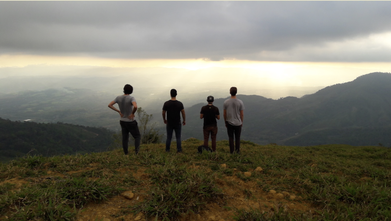 Have you stopped to think how much of what you appreciate and desire depends on your perspective? Last year, during The Bridge’s 2-week project in South Africa, we were hiking in the beautiful mountains around Cape Town. Arnold, the program director of a friend organization, Usiko, and I were walking together. They work with at-risk youth from underprivileged suburban areas of Cape Town.
And just like appreciation requires education, what we desire is a product of such education,and often goes unnoticed as well. Of course we have basic needs, like food, shelter and belonging; and meeting those needs are part of our desires. However, a simple hut and a mansion are both shelter, just like we can find belonging by being part of a sports team or by posting lots of pictures on social media. Being thoughtful of what we desire is essential, as many people around us want us to desire something they have, like their products, substances, or their acceptance. If we are not intentional and mindful of what we desire we can end spending a lot of energy and time (in some cases a lifetime) pursuing a desire that doesn’t fulfill us or maybe isn’t our desire to begin with. Huts, mansions, sports teams and social media are all fine if they are truly satisfying our deeper needs; otherwise they may become a distraction or an obstacle, and ultimately lead to frustration and disappointment.
It’s important to reclaim our own ability to shift the way we perceive what we need and appreciate. It’s not easy, it requires a lot practice, education and more often than not, re-education. But it’s completely possible! And what’s more, we can influence, and therefore educate other people as well, just by sharing our perspectives on what we appreciate and realize we truly need.
by Dr. Danny Recio, PhD
Once physiological needs are met, people crave: safety, belonging and mattering, before they can reach self-actualization. Self-actualization is the fulfillment of one's mission, a fuller knowledge of the person's intrinsic nature, and the unceasing trend toward integration within the person. Many of us have privilege of experiencing the safest time in human history when it comes to physical health, violence and ability to fend against natural disasters and disease; however, belonging and mattering is much more difficult than ever before. Societies are immensely large, not just because of the sheer number of people on the planet, but also because they are extremely interconnected. This "global" perspective makes the existence of one single individual appear insignificant, especially in comparison to the images and narratives the media portray. People seek happiness, success and peace in a world so fast, complex and impersonal that people even struggle to find the self that could potentially be happy, succesful and peaceful. The dissatisfaction of such important needs as belonging and mattering provokes nihilism, exaggerated attempts at asserting a self (selfishness, histrionic tendencies, etc.) and many other unhealthy behaviors (bullying, drug-use, anxiety, depression). The deficiency in belonging and mattering trickle down in the hierarchy and shake up the foundation, leading to loss in safety (e.g. anxiety) and physiological health (e.g. illness due to stress). This deficiency also prevents reaching upward in the hierarchy toward self-actualization, inhibiting people from transcending themselves. In other words, they cannot grow as a person, and thus remain stunted, immature, and even perhaps child-like. This seems to lead people to feeling lost, adrift without a captain of their own ship, without the lead in the script of their own lives. This is much more the case in younger generations, because they are growing up in an exponentially larger (i.e. interconnected) world, who needs them less (due to advances in technology), demands more (because of trends in economy and perfectionism), and connects with them less (because of tendencies toward decreased face to face time between people). Thus, one could say younger generations might not have even lost themselves, as they have not even created themselves. They are not adrift in the ocean of life, because the ship hasn’t even sailed. When asked, adolescents and emerging adults will say that the markers of reaching adulthood are financial independence, independence in decision-making, and acceptance of responsibility. The direction of the idea makes sense, but the use of the concept of independence is inaccurate. Independence, dependence or even interdependence are not at the core of the issue, as they speak of the degree of influence or control from others in one’s actions. This is important, but what truly makes a difference here is the degree ofself-generation, which speaks of how much is originating from within. Reaching the point of adulthood should mean that one is making the transition from having all aspects of one’s life originate from the outside, to originating more from within. Motivation, finances, problem-solving, learning, the satisfaction of basic and complex needs, all of these ought to move from a place of outer-generation when we are younger, to a place of self-generation as we develop. The variable of independence does not matter here, as one is always interconnected with the environment, always needs it, and always draws resources from it, and hopefully gives as much back as well. Self-generation, instead, is about where the initial force, energy and motion are coming from when taking care of a need or fulfilling a goal, and who is keeping the process going toward completion. Integrative growth is the type of learning that leads to self-generation. In learning experiences or processes, especially those that are facilitated by others, there is a strong tendency to facilitate growth that is induced and where the learner remains passive -- being a patient, like in psychiatry or psychology. Facilitating learning that leads to self-generation requires a sophisticated and careful approach, especially because the tendency in our culture is to focus on content outcomes, like grades in education, or symptom reduction in psychotherapy. Passive learners are good for business, because they’ll always need facilitators, but not good for social development. Integrative growth is not just about self-generating, it is also coherent, so the person grows as a whole and not just parts at the expense of others. For example, one doesn’t grow financially but at the expense of diminished health. Integrative growth is also inclusive, so as the person grows, others around grow as well: his family, community, etc. Finally, integrative growth is sustainable, so the growth now makes growth more likely in the future. These three elements are possible because of the self-generating nature of integrative growth, as without this characteristic one cannot permeate growth toward one’s whole being, toward others and perpetuate it toward the future. All living beings are biologically self-generating; they combine inert elements and activate them in combination in order to grow in a self-generating way. Machines cannot do this, as they require external forces to induce action and keep it going. People in learning processes must function like organisms, and not machines, and must combine different elements to activate self-generated learning. The elements that when activated lead to self-generating growth are: proactive purposefulness, resilience, open collaboration, problem-solving creativity, and self-governance. These five working together are called the integrative function, and are signs that self-generation and hence integrative growth is taking place. Supportive Immersion / Supported Immersion ©2017 Dr. Danny Recio, PhD & Dr. Heather Tracy, EdD Dr. Danny Recio, PhD, and Dr. Heather Tracy, Ed.D - Presentation at Young Adult Transition Association Conference in Coeur d'Alene, Idaho, in October 2017. |
SuIm TEAMAll of us here at the SI Institute look forward to hearing your thoughts on our posts. Archives
June 2022
Categories
All
|
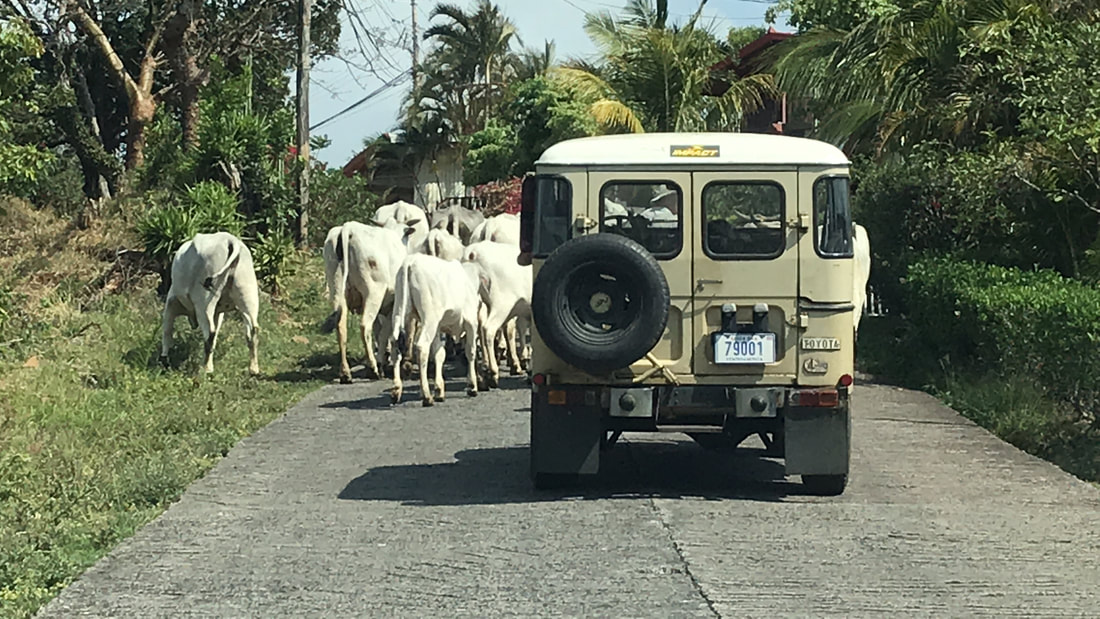
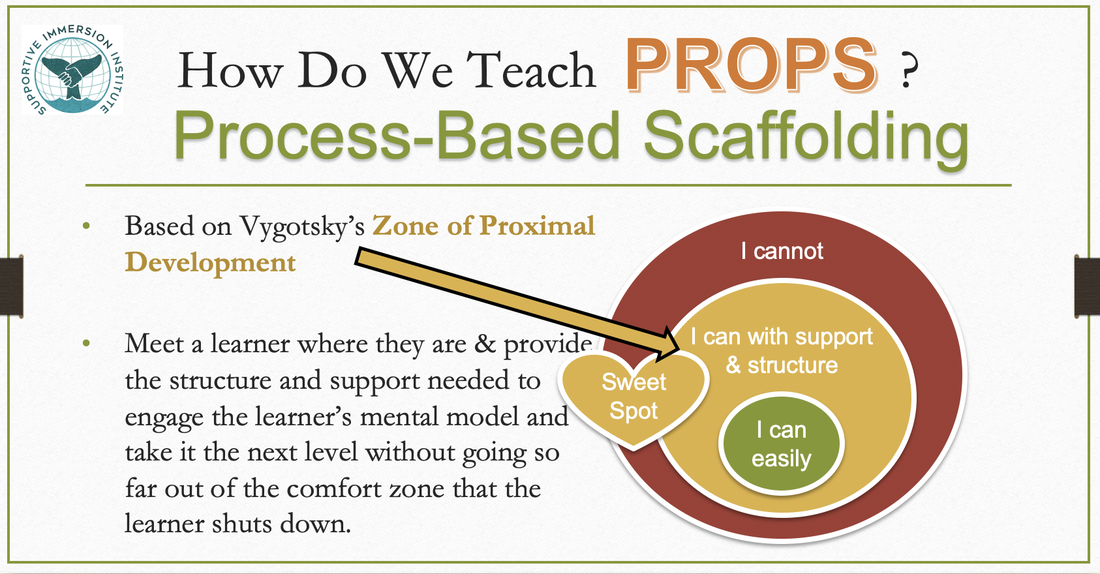
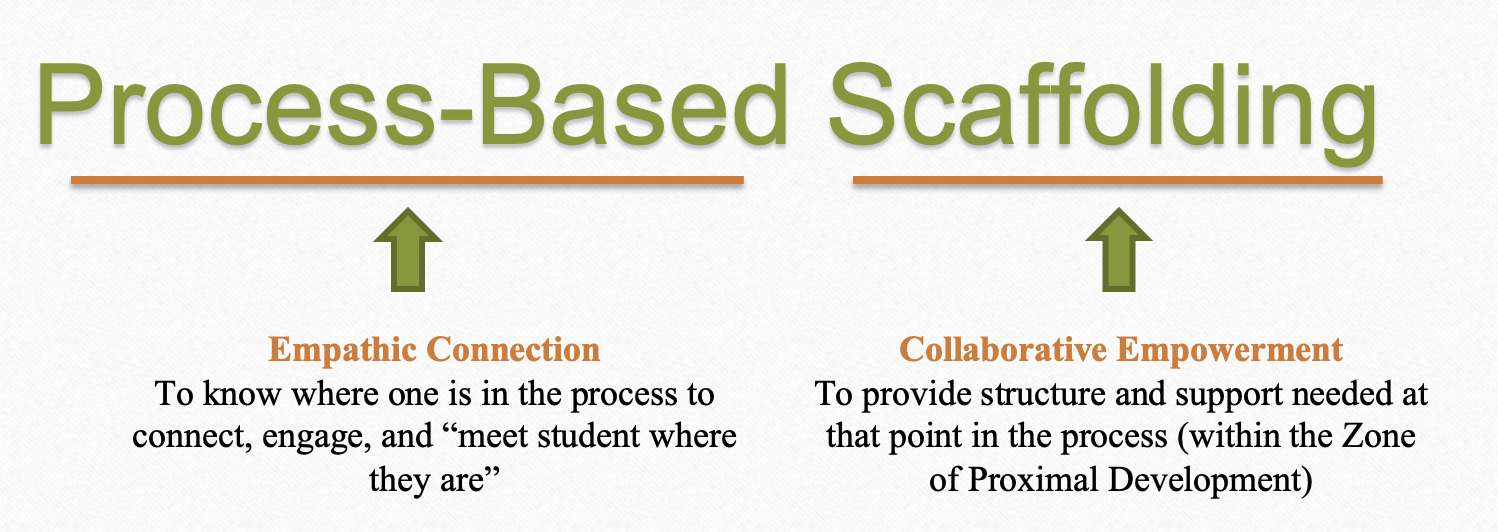
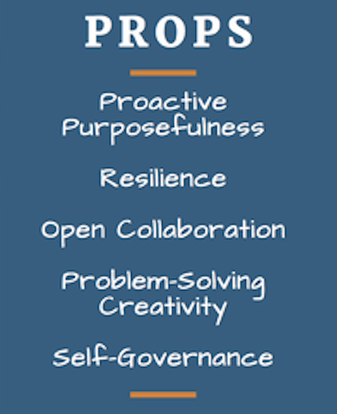
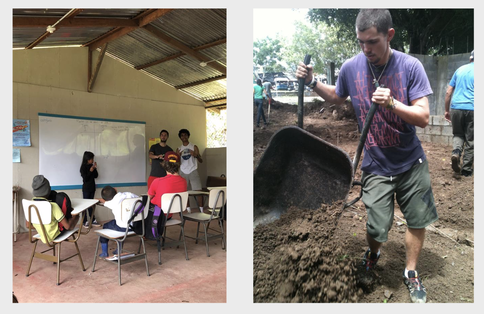
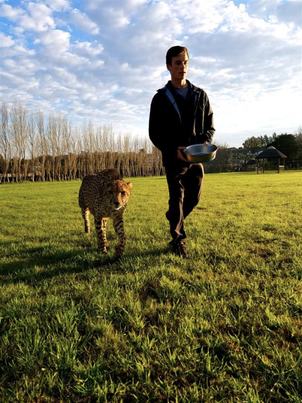
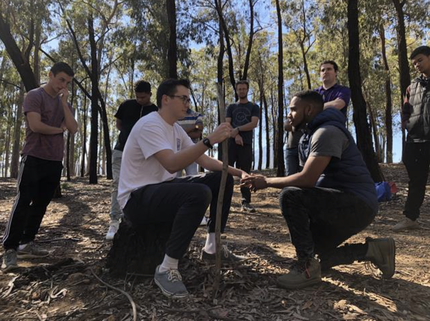
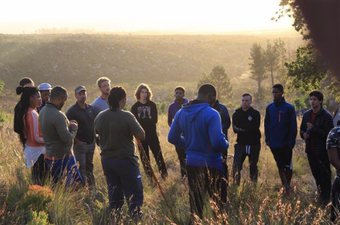
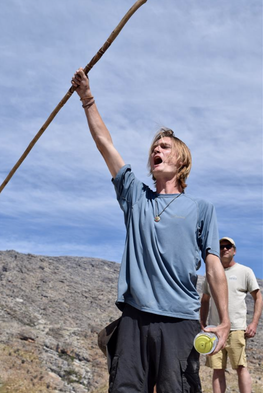
 RSS Feed
RSS Feed